Elephant Bulls in ‘Musth’
on Feb 04, 2025When encountering an elephant bull walking down a road or approaching you in any way, shape or form, it can be a very intimidating experience. Usually, elephants are very relaxed, especially around our reserve. Understanding their behaviour and recognising warning signs is key to ensuring a safe and respectful encounter with these magnificent beasts.
Elephants have quite a complex social structure with the breeding herds being led by a matriarch, the dominant female. These herds primarily consist of females, calves and young bulls that have not yet reached sexual maturity. Once the bulls reach sexual maturity, typically between the ages of 15 and 20, they are pushed out of the herd.
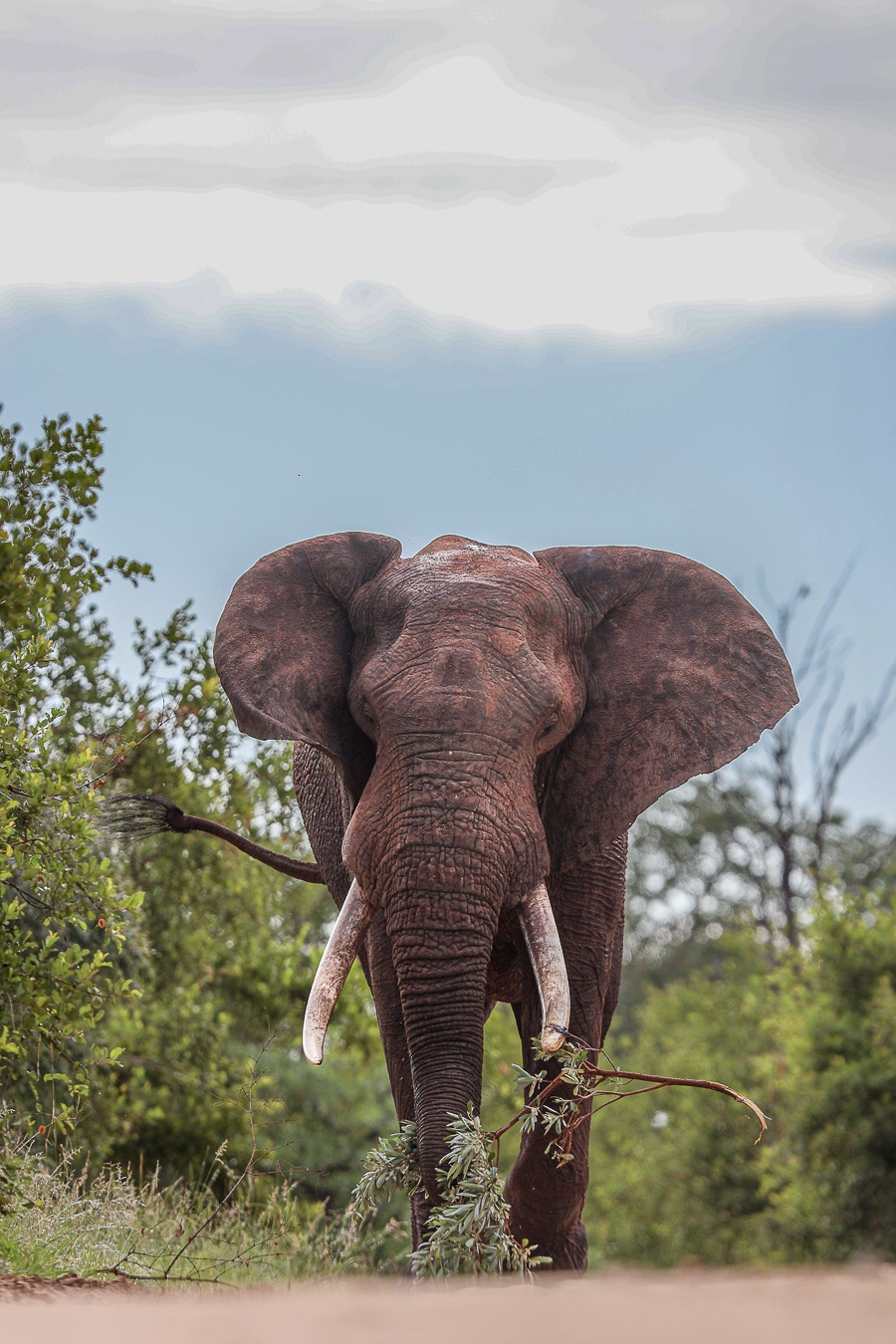
From this point, elephant bulls lead relatively solitary lives, although they occasionally join bachelor groups for companionship. Despite being highly social animals, males are often seen alone, as they are not permitted in breeding herds due to the disturbances they can cause, particularly with the females. This separation is more pronounced because female elephants typically reach sexual maturity at a younger age, between 10 and 12 years.
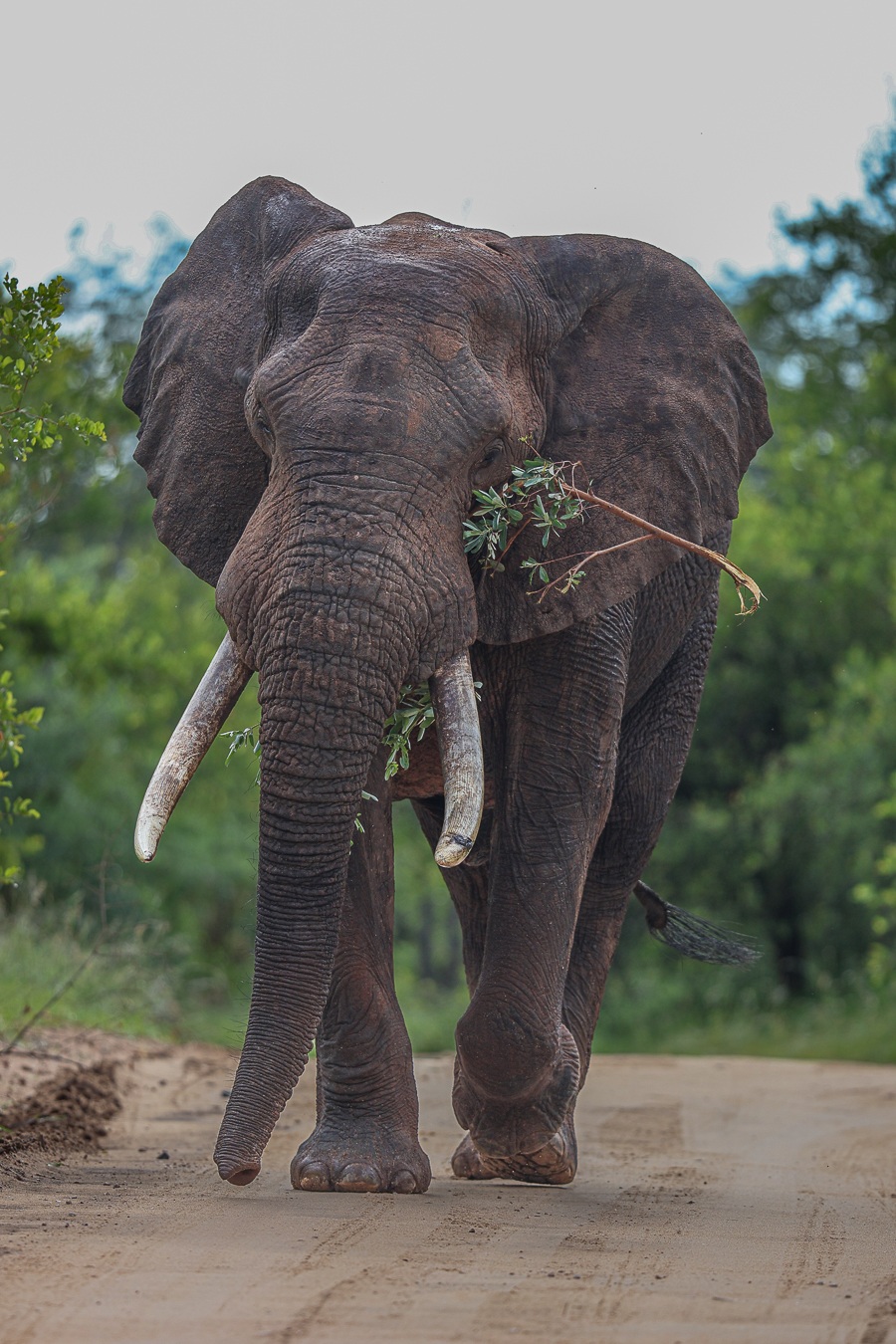
Elephant bulls develop throughout their lives and never stop growing and with this comes the hierarchy of getting to mate with females. Elephants, being the largest land-living mammals in the world, have a very interesting sexual development in bulls.
Male elephants experience a condition known as ‘musth,’ during which their hormone levels, particularly testosterone, can increase up to 100 times their baseline levels. This surge causes a significant spike in aggression and temperament. Bulls in musth often exhibit high levels of frustration, partly because other elephants avoid interacting with them. Recognising the intense hormonal changes the bull is undergoing, other elephants typically steer clear to avoid potential conflicts with an already irritable and agitated individual.
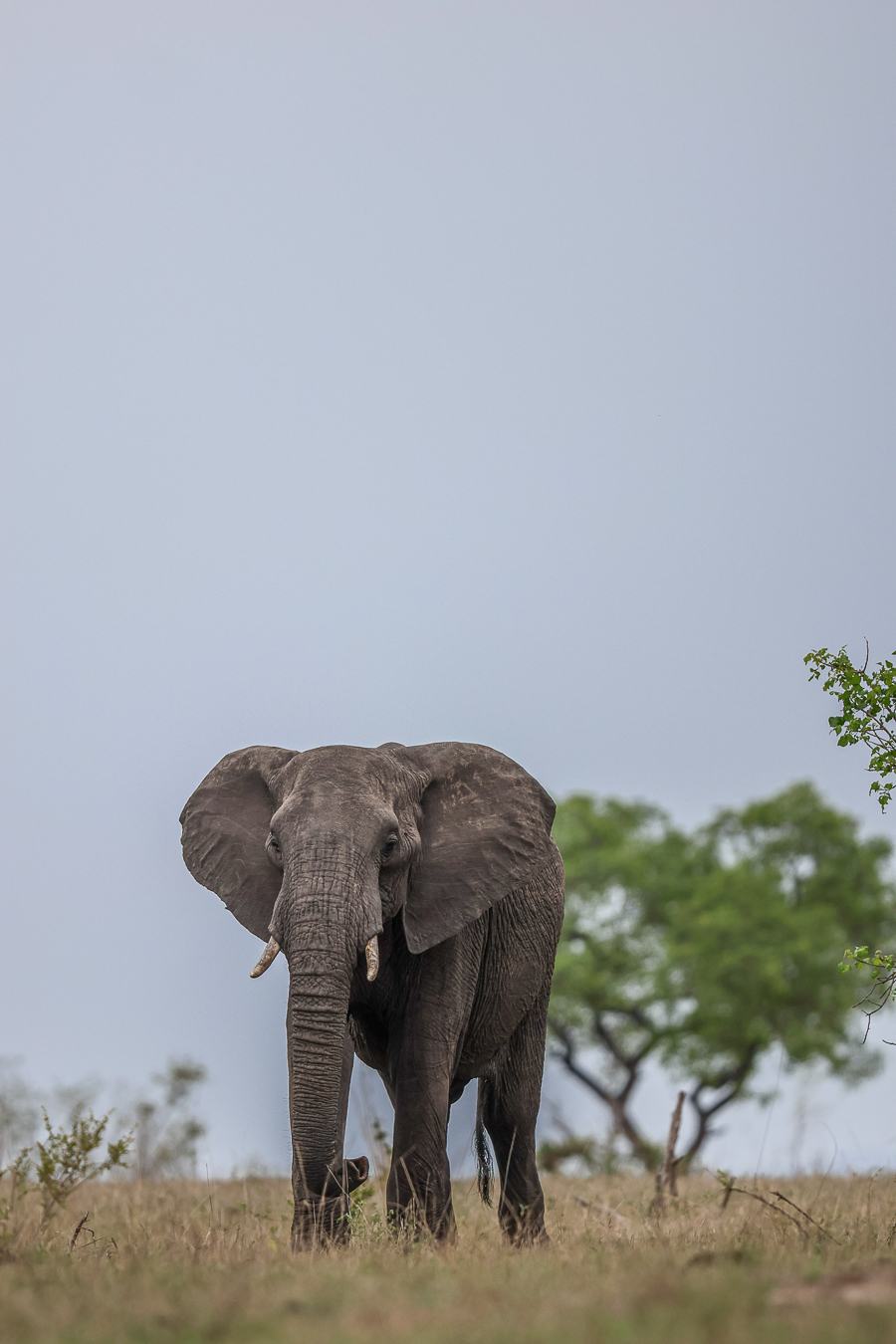
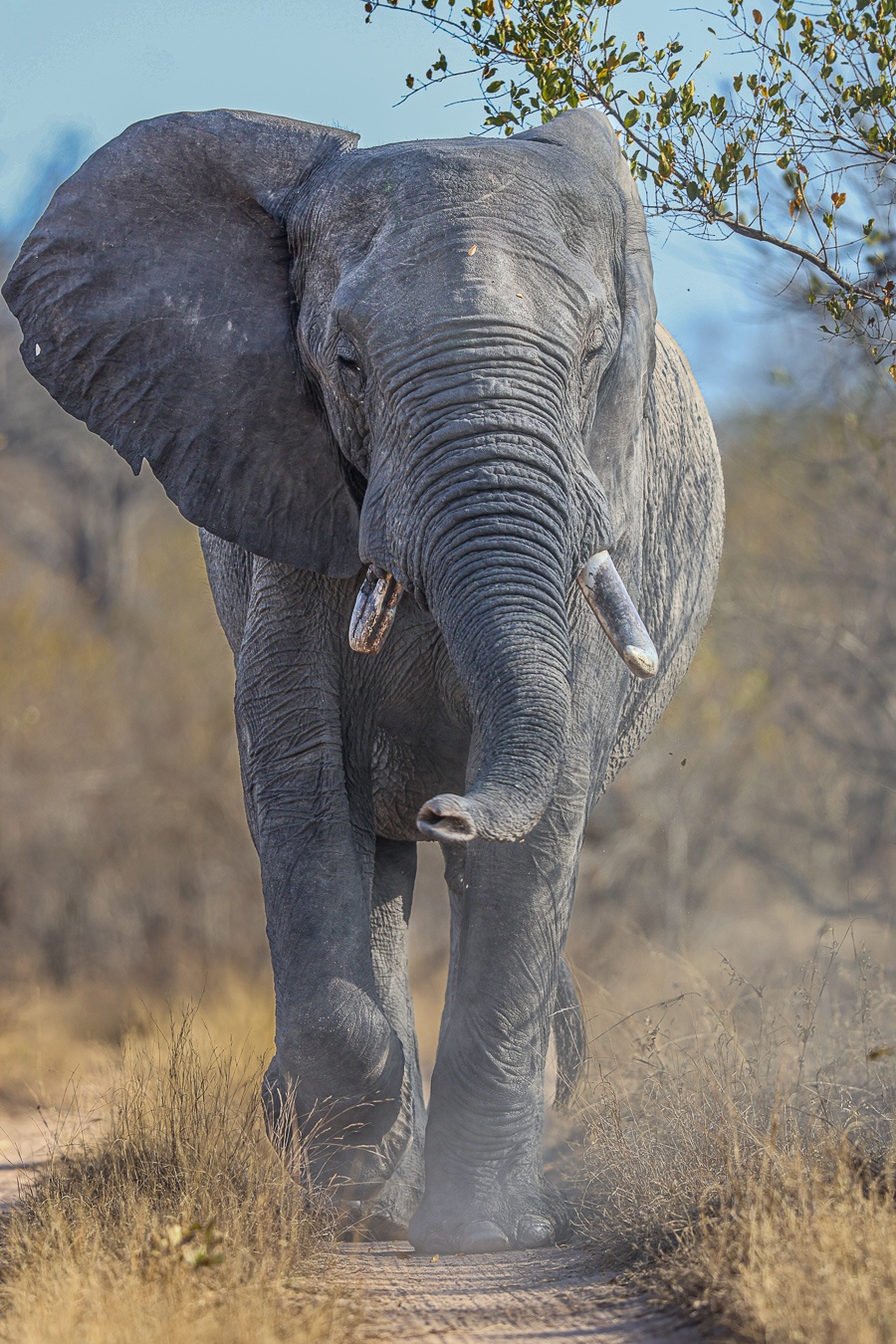
Elephant bulls can enter musth as early as their early 20s, and in healthy males, this process can continue into their 50s or even 60s.
The word ‘musth’ originates from Urdu and Persian, meaning ‘drunk.’ This term refers to the unpredictable and erratic behaviour displayed by elephant bulls during this phase.
Bull elephants typically enter musth once a year, with each cycle lasting between 2 to 4 months. However, the duration and frequency can vary among individuals depending on their region.
The typical musth cycle proceeds as follows:
- Pre-musth lasts approximately 1 month
- Peak musth lasts approximately 1-1.5 months
- Post-musth lasts approximately 1-1.5 months
As guides, it is crucial for us to recognise when an elephant bull is in musth, as elephants in this state are often more aggressive. Unaware encounters with bulls in musth can lead to dangerous situations, sometimes even deadly, for those who don't understand the signs.
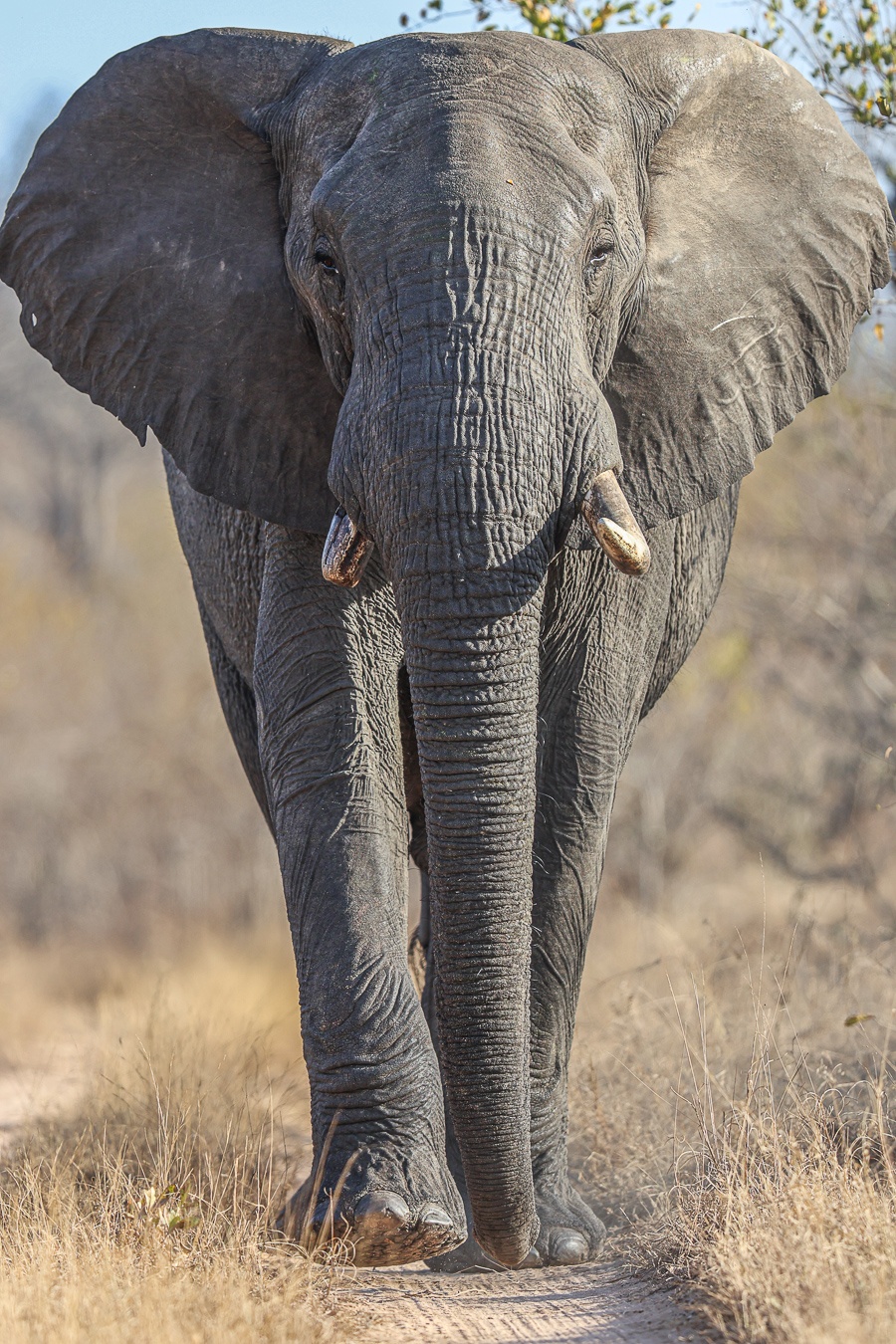
There are several indicators to look for when determining if an elephant bull is in musth. One of the first signs to check is the temporal gland, located on the temple between the elephant's eyes and ears. During musth, bulls secrete a hormone-rich liquid called temporin from these glands, which appear as tear-like marks on the side of the elephant’s head.
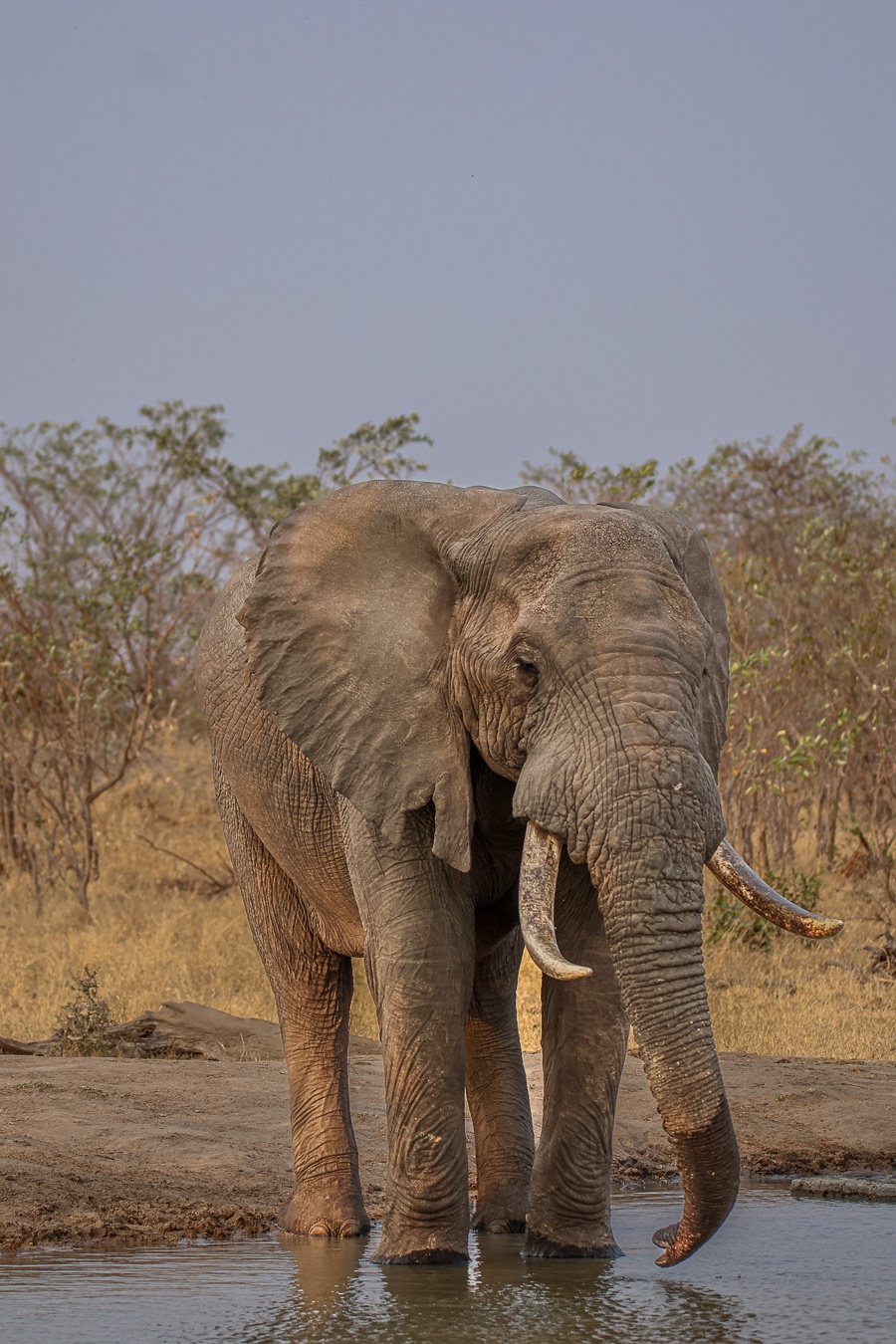
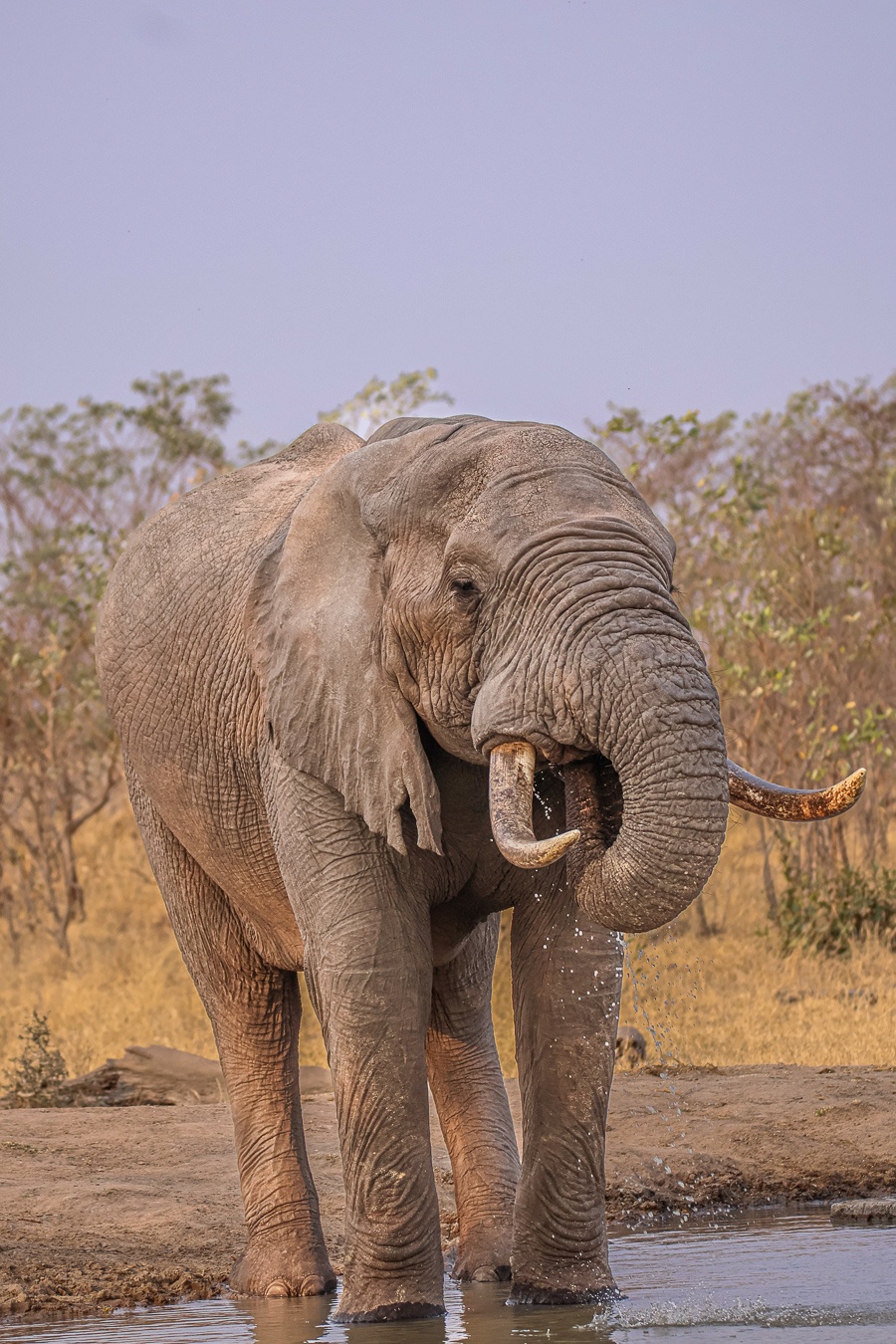
Another clear sign of musth is seen in the hind legs of the elephant bull. Elephants in musth often have wet hind legs due to constant urine drips from the penis. This secretion has a strong, distinct smell, which females can detect from several kilometres away. They use this scent to avoid bulls in musth, guiding their herds to safety. While elephants have an exceptional sense of smell, even humans can easily detect this secretion, signalling the presence of a musth bull and indicating when not to approach.
While it is possible to have calm and relaxed encounters with elephant bulls in musth, it is always safer to maintain a respectful distance. They may appear calm for a moment, but even the slightest noise or movement can trigger aggression. It’s always better to be safe than sorry.

Although elephant bulls can enter musth at any time of year, it is particularly common during the summer and the rainy season. The bush is rich in nutrients at this time, supporting their health. This surge in nutrients often triggers a corresponding spike in hormone levels, initiating the onset of musth.
Elephant cows do not experience musth. Instead, they go through an oestrous cycle, which lasts between 13 to 18 weeks. During this time, females are receptive to pregnancy for approximately 6 to 12 weeks, occurring about three times a year. Unlike males, who undergo significant behavioural changes during musth, females do not experience such fluctuations, as their hormones and reproductive processes differ in several ways.
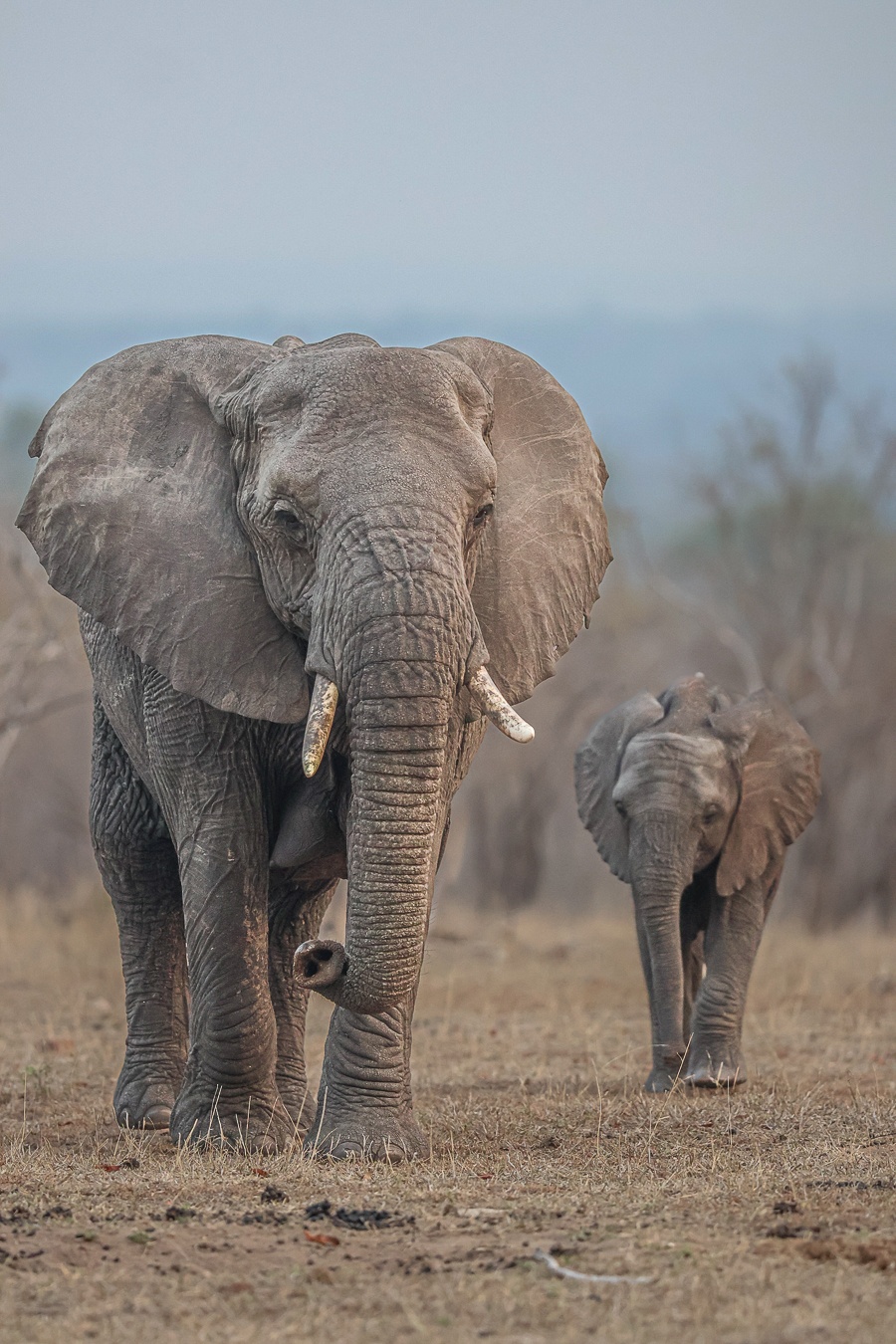
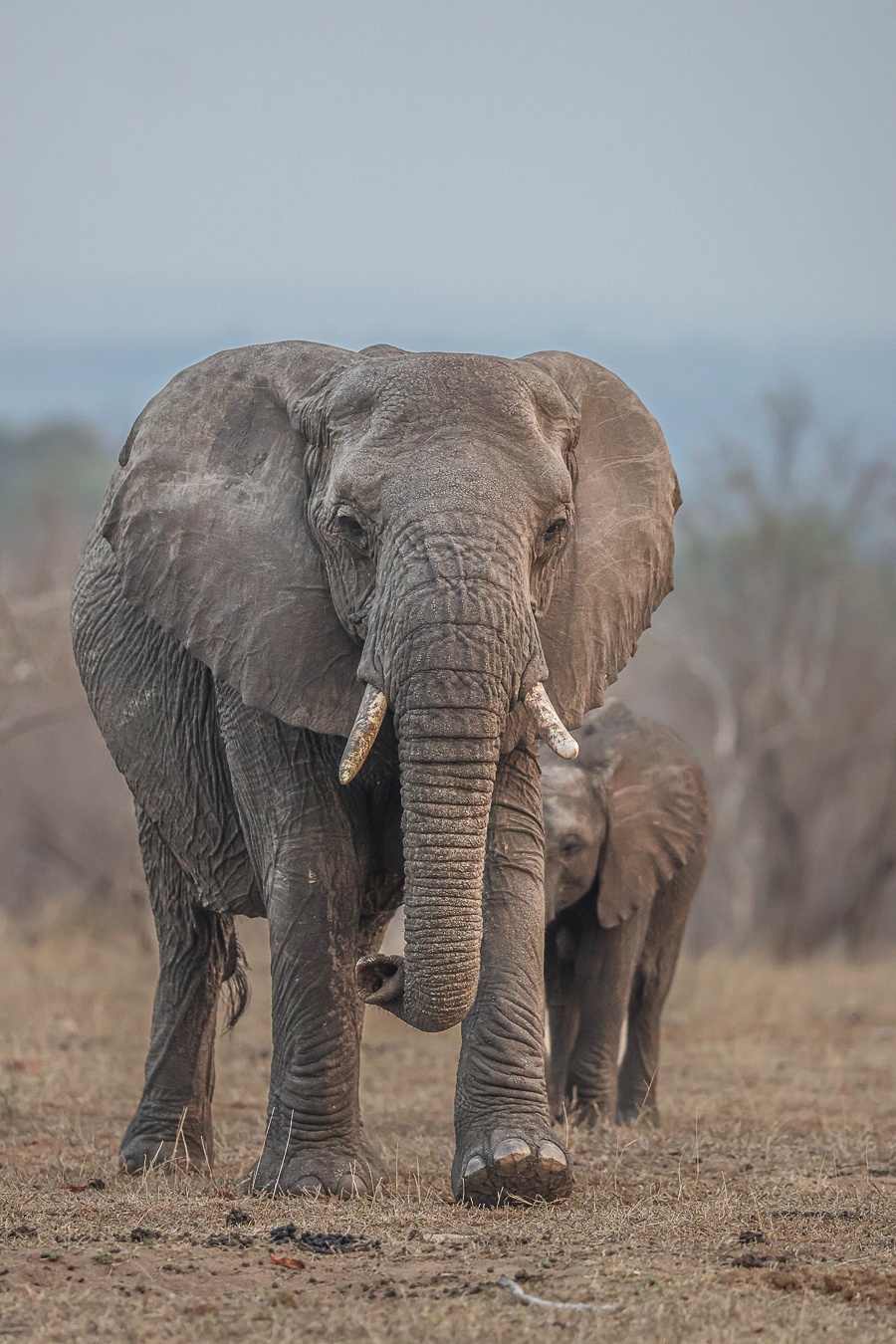
Taking all of this into consideration, it is crucial to understand animal behaviour and the life cycles of these creatures before attempting to approach them. As wild animals, they will defend themselves if they feel threatened. We, as humans, are mere spectators in their environment and must respect their boundaries. It's important to avoid getting too close and to recognise when they should not be approached at all.
By following these basic guidelines, we can ensure that these animals have more positive experiences with us, reducing the likelihood of them feeling the need to act aggressively.
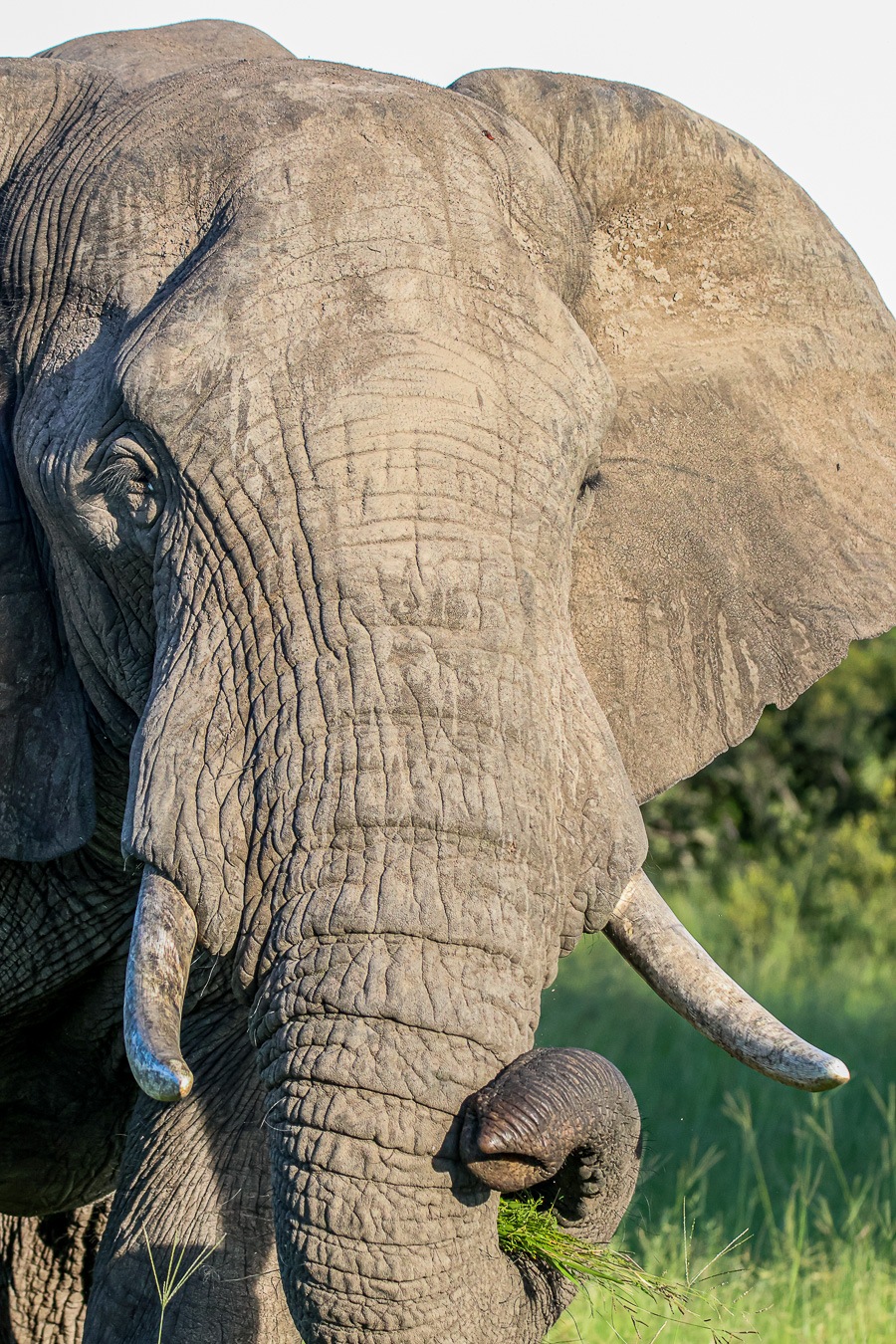
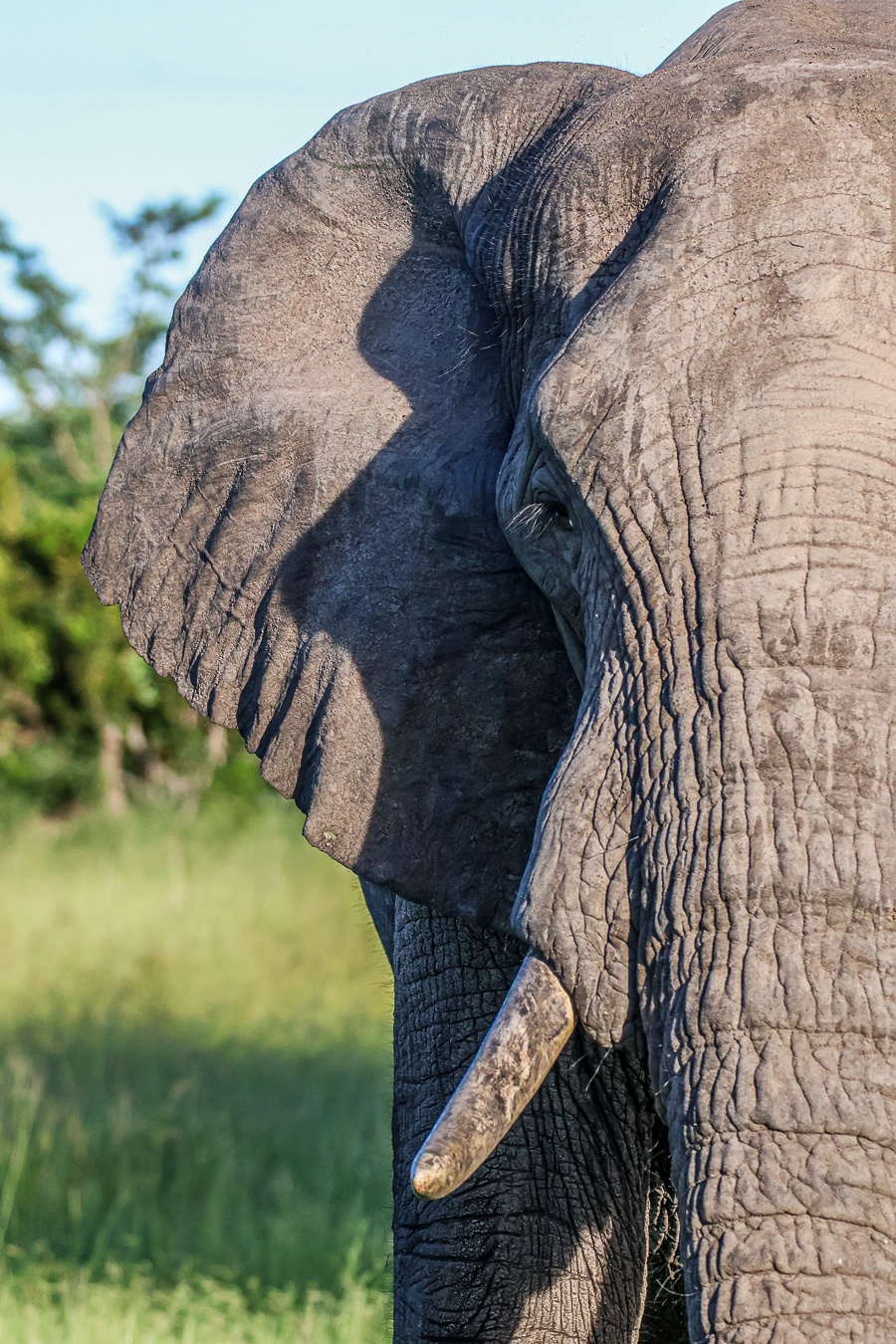
An encounter with an elephant bull in musth can be very dangerous if you're unaware of the signs. However, it can also be a fascinating sight when you recognise these signs and observe how their behaviour can shift in an instant.
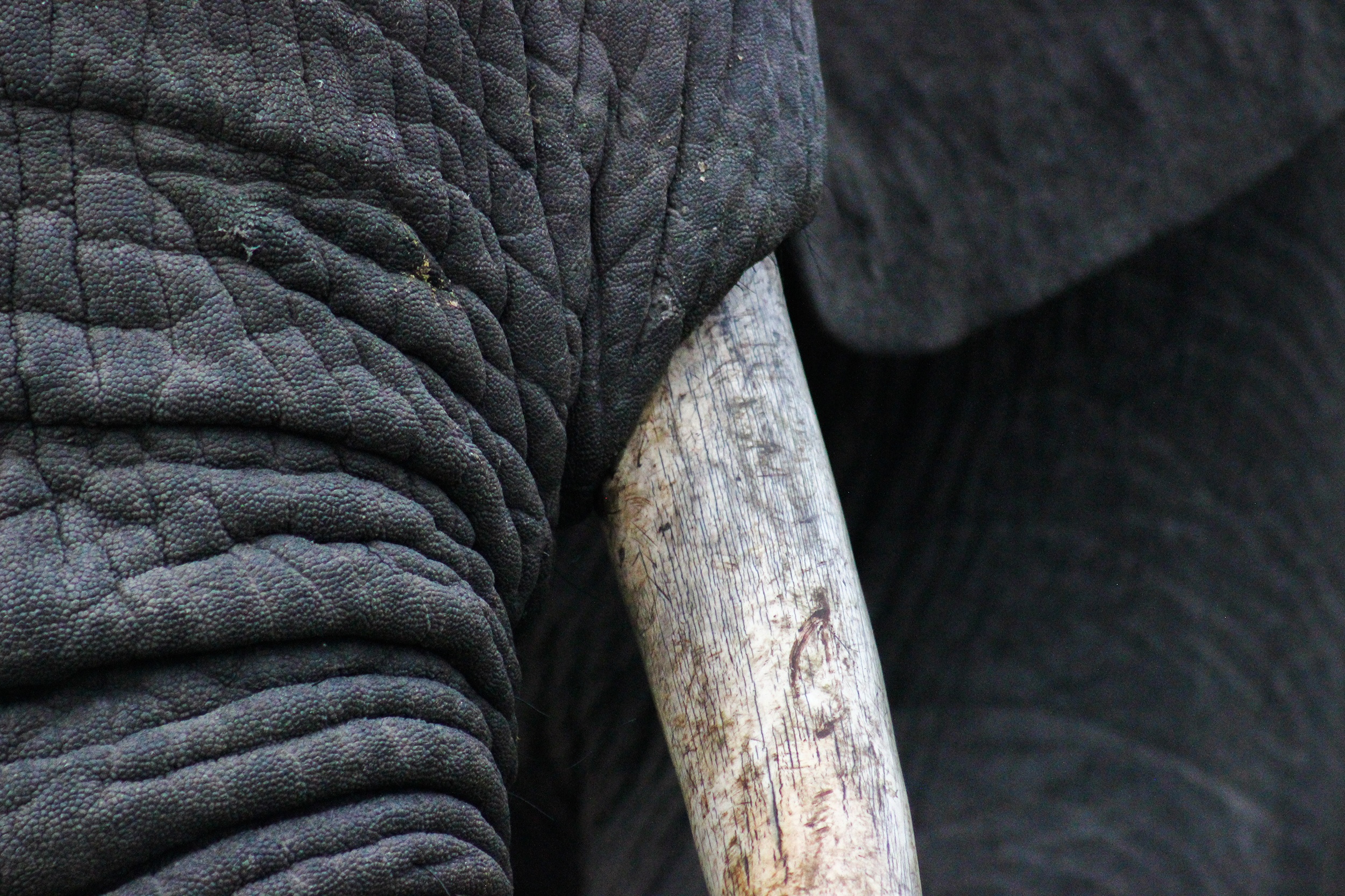
When not sure in nature, rather don’t do it.
Blog by Ruan Mey (Earth Lodge Ranger)







